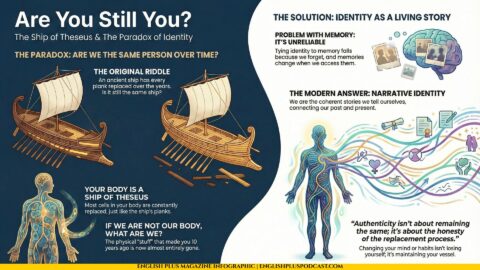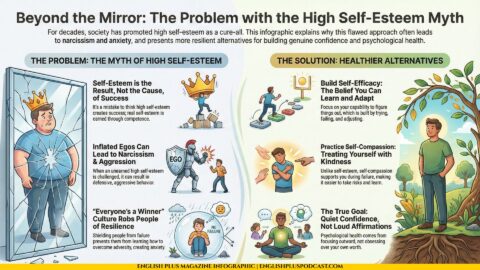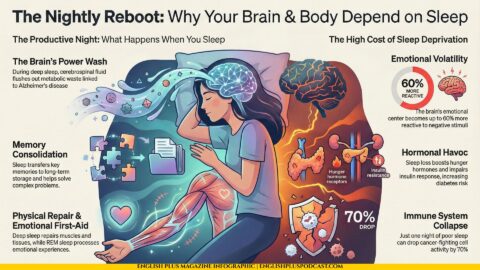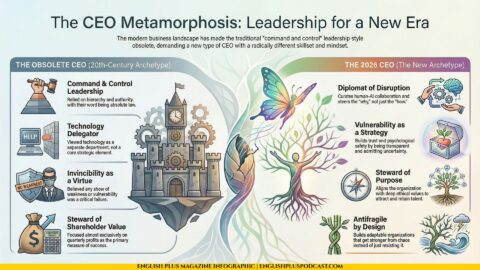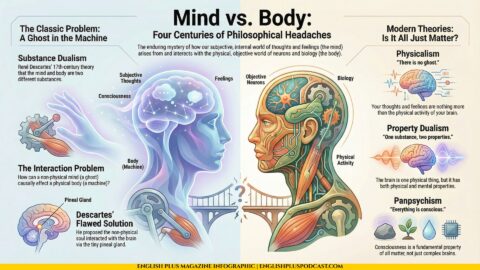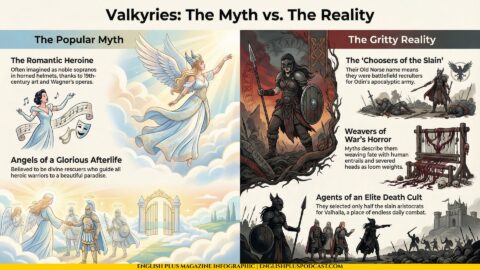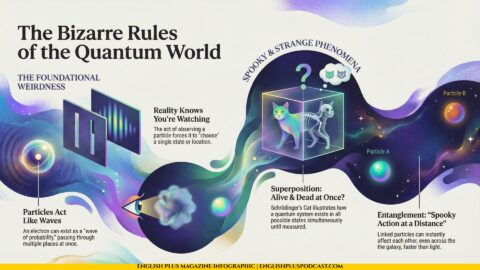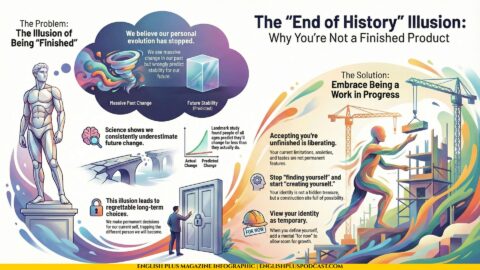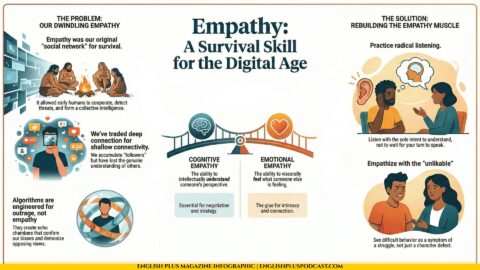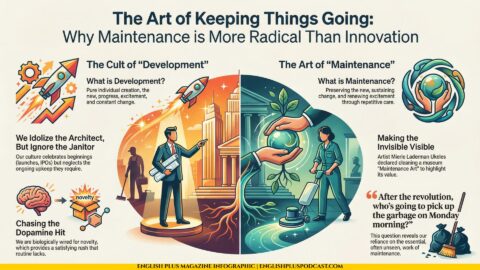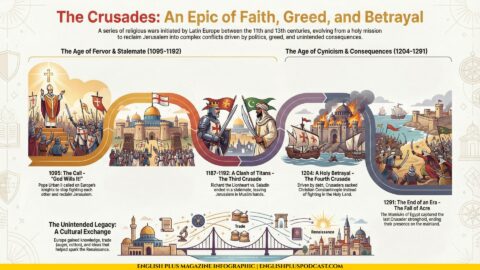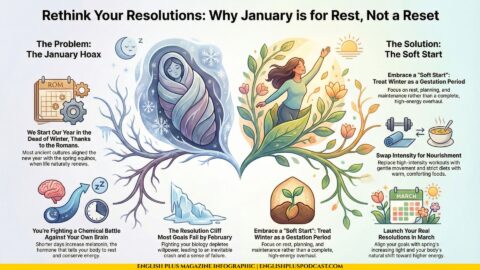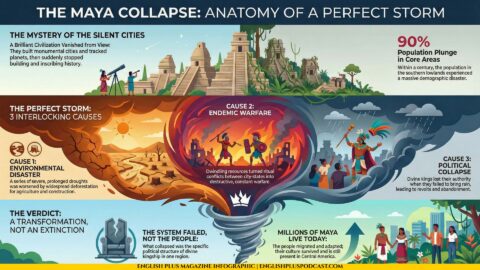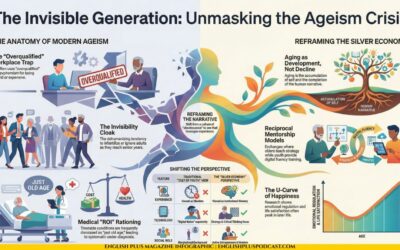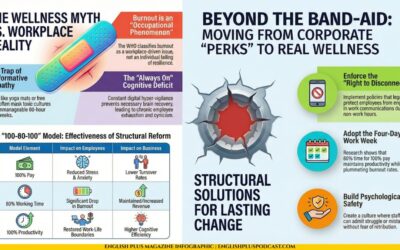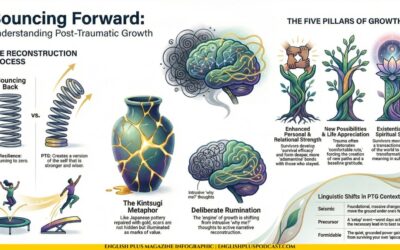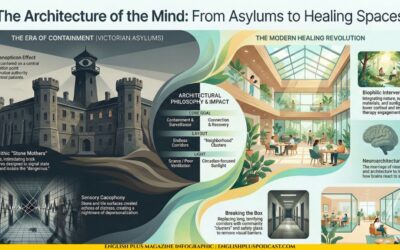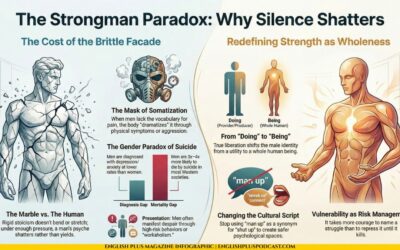English Plus Magazine
Dive into a world of ideas, stories, English and discovery.
Coming Soon!
Some of these articles are already published, and some will be published very soon. Check out the new articles below…
Danny's Column

The End of the “Free-for-All”: Why English Plus is Pivoting to a Premium Future
After eight years of giving it all away, the internet has changed. To survive the noise of the AI era and build something truly lasting, English Plus must evolve from a public broadcast into an exclusive community.
For nearly eight years, since I left traditional employment, my mission has been simple: provide high-quality English education, compelling stories, and original music to anyone with an internet connection, completely free of charge.
I believed in the old contract of the internet: build value, build an audience, and support will naturally follow. For a long time, that model worked.
But the internet of 2026 is not the internet of 2018.
Today, the digital landscape is flooded. Algorithms prioritize quantity over quality. AI-generated “content farms” churn out mediocre articles and generic music at a scale no human can compete with. The public square has become deafeningly noisy.
For an independent creator dedicated to nuance, depth, and genuine artistry, fighting for attention in this environment is a losing battle. It is also an exhausting one. Trying to maintain a massive volume of free content just to stay visible has led to burnout, and frankly, it is no longer a sustainable way to support my family.
I have realized that by trying to serve everyone for free, I am serving no one perfectly, and very soon, no one at all.
Therefore, I have made a difficult but necessary decision. English Plus is ceasing its “volume game.” I am done chasing the algorithm. Instead, I am pivoting entirely to focusing on value for the people who value my work.
Effective immediately, English Plus is transforming into a primarily premium, member-supported ecosystem.
The New Reality: Less Noise, More Depth
This isn’t about disappearing; it’s about refocusing. Here is exactly how the platform is changing for the general public versus our Patreon members:
1. The Website: The 80/20 Shift
For eight years, I have published thousands of articles. That vast archive will remain free as a public resource. However, moving forward, 80% of new content on the website will be locked exclusively for our members.
- The Public: Will receive one high-quality article per week.
- The Members ($5 Tier): Will receive six or more additional deep-dive articles, advanced language analyses, and exclusive literary explorations every week.
2. The Podcast: From Broadcast to Masterclass
We are drastically reducing the public podcast output to focus on depth.
- The Public: Will receive one standard episode per week.
- The Members ($5 Tier): Will receive an additional, longer, more intensive “masterclass” episode every week, tackling complex topics we can’t cover in the free feed.
3. The Music: The “Virtual Concert” Hall
As a composer, it is disheartening to see human-created music swallowed whole by streaming platforms incentivizing AI generation. I am removing my focus from public streaming.
- The Radio Station: The 24/7 internet radio station is being shut down immediately.
- Exclusive Drops: My new albums, intricate mixes, and musical experiments will no longer be released to the general public. They will be released solely as “Virtual Concerts” and exclusive digital drops for my $10 Tier patrons.
The Bigger Picture: The Educational Game Project
Stepping back from the relentless churn of producing free daily content is not just about survival; it is about freeing up mental energy for innovation.
This pivot buys me the time required to focus on my most ambitious goal yet: The English Plus Educational Game Project.
My goal is to move beyond passive listening and reading to create interactive experiences that make learning addictive. By supporting English Plus now, you aren’t just paying for articles; you are funding the development of these games. Furthermore, my patrons will be the exclusive beta testers, getting to play and shape these projects before the rest of the world even sees them.
A Final Note on Value
I want to take a moment to acknowledge the incredible Sponsors on Patreon (our $15 to $100 tiers). Their names are listed on every page of this site, in my books, and in my music credits because they are the executive producers of everything you see here. Their support is the bedrock that allows me to make this transition towards quality.
If you have been a long-time free listener or reader, I hope you understand this decision. Eight years is a long time to provide a professional service for free. If you value the expertise, the storytelling, and the music that English Plus provides, I invite you to join us on the other side of the paywall.
The free-for-all is over. The era of exclusive, high-value, human-created education has begun.
Danny Ballan
Founder, English Plus Podcast
English Plus Magazine
The Invisible Generation: Why We Must Challenge Ageism and Embrace the Future Self
Ageism is the last acceptable prejudice. We explore the “cult of youth,” workplace discrimination, and the “Silver Economy,” challenging how society devalues the elderly.
The Corporate Mental Health Day: Genuine Progress or Just a PR Stunt?
Is your company’s “Wellness Wednesday” actually helping, or just a Band-Aid on burnout? We analyze the disconnect between corporate mindfulness perks and the reality of the 80-hour work week.
Post-Traumatic Growth: How We Break, How We Heal, and How We Become Stronger
Trauma doesn’t just damage us; it can transform us. Explore the psychology of Post-Traumatic Growth (PTG), the art of “Kintsugi,” and why bouncing forward is better than bouncing back.
The Blueprint for Sanity: How Architecture Shapes Our Mental Health
Do buildings make us sick? We explore the shift from Victorian asylums to biophilic design and how urban architecture fuels the modern anxiety epidemic.
The Strongman Paradox: Why Male Silence is Lethal & How to Redefine Strength
Why are men less likely to seek help? We explore the sociology of male silence, the “Strongman” paradox, and the truth behind the mid-life crisis.
The Synthetic Other: Why We Are Choosing AI Boyfriends Over Humans
Are AI girlfriends the cure for loneliness or the end of human intimacy? We explore the sociology of dating machines, the “Hikikomori” effect, and the redefining of infidelity.
Grief Tech: The Rise of AI Thanabots and the End of Closure
Can AI bring the dead back to life? We explore the ethics of “Thanabots,” the psychology of stalled mourning, and the digital afterlife. Is talking to a digital ghost healing or haunting?
The Algorithmic Boss: How AI is Managing the Gig Economy Workforce
AI isn’t just taking jobs; it’s managing them. Explore the sociology of the “invisible manager,” from the panopticon of warehouses to the gamification of gig work.
Relativity Explained: Why Time Slows Down and Gravity Isn’t a Force
Forget what you know about time. Einstein’s Theory of Relativity changed everything. We explore time dilation, the twin paradox, and why gravity is just a curve in the fabric of the cosmos.
EQ vs IQ: Why Emotional Intelligence is the Future of Management
Stop hiring for IQ and starting promoting for EQ. We explore the 5 pillars of Emotional Intelligence, why the “Genius Jerk” is obsolete, and how to master the soft skills that drive hard results.
Invisible Disabilities: Why “Looking Fine” Doesn’t Mean Being Healthy
Millions suffer from conditions we cannot see. We explore the “Invisible Disability” spectrum, the exhausted reality of masking, and why empathy shouldn’t require visual proof.
The Silent Extinction: Can AI Save the Cultures It Threatens to Destroy?
AI is often accused of erasing cultural nuance, but it might be our only hope for preserving dying languages. We explore the paradox of the Digital Ark, the danger of AI hallucinations, and the race to save human heritage.
Also in English Plus Magazine
Mini Podcasts Network
The Enchantress of Numbers Meets GPT: Ada Lovelace on the AI Controversy
We resurrect the mother of computer programming, Ada Lovelace, to discuss the modern AI crisis. Does generative AI truly think, or is it just a sophisticated loom?
The Art of Joy Protection: Why We Say “Rain on Someone’s Parade”
Have you ever felt the electric buzz of excitement, only to have someone walk in and unplug the machine? We’ve all been there, and—let’s be honest—we’ve probably been the one holding the plug, too. Today, we aren’t just looking at the idiom “Rain on someone’s parade”; we are exploring the psychology of disappointment, the fragility of enthusiasm, and how to keep your personal parade marching even when the storm clouds gather.
Memory Melding: What If We Could Trade Pasts?
Have you ever struggled to explain exactly how you felt in a specific moment? Imagine a world where you didn’t have to use words. What if we could transfer our memories—sights, sounds, and emotions—directly to someone else? In this episode of English Plus Espresso, we dive into the beautiful, messy, and terrifying possibility of shared memory.
The Sun Standing Still: The Quiet Power of the Solstice
It marks the longest day and the longest night, but what does solstice actually mean? We explore the etymology of the “sun standing still” and how this celestial pause can teach us about patience and turning points in our own lives.
Escaping the Waiting Room: Why The Best Time is Now
Regret tells you it’s too late; wisdom tells you to start anyway. We explore the famous proverb: “The best time to plant a tree was 20 years ago. The second best time is now,” and find the antidote to procrastination.
The Real You vs. The Performed You: Defining Authenticity
Are you being real, or are you just playing a character? We dive deep into the question of authenticity—what it means, why it scares us, and how dropping the act can change your life.
The Rubber Band Soul: Building Resilience in Hard Times
Life hits hard, but so can you. We talk about building resilience not as a trait you’re born with, but as a muscle you can train. Discover how to bounce back from failure without losing your softness.
The Pinocchio Effect: What If Every Lie You Told Was Immediately Exposed?
Imagine a world where every lie you told turned your skin blue or made a loud buzzer sound. We explore a hilarious and terrifying reality of instant radical honesty and ask: Would society collapse, or would we finally be free?
Stories
The Memory Pawnshop | The Story and The Crucible
A cyberpunk short story by Danny Ballan about a man who trades his painful memories for success—only to discover that resilience, empathy, and humanity cannot be bought without suffering.
The Lovers of No Man’s Land | Novella
In a world divided by war, two lovers from enemy nations find each other, only to be accused of espionage. Their romance is twisted into a tale of treason, leading them through brutal interrogations and trials as diplomats negotiate a peace that may come too late. A tragic story of love, sacrifice, and a legacy that ultimately transcends the borders that condemned them.
Chalk on Elias’s Mind | A Short Story by Danny Ballan
A man’s quest for revenge on his cruel headmaster shatters in an instant of unexpected pity. Read the short story “Chalk on Elias’s Mind” by Danny Ballan, followed by a complete author-led deep dive into its themes of memory, power, and the true meaning of confrontation.
Short Stories | The Weight of an Empty Room
Explore the profound weight of grief and memory in “The Weight of an Empty Room.” Follow Elara as she confronts her late husband’s study, uncovering hidden secrets and navigating the path toward integrating loss into life. A literary short story about love, absence, and discovery.
The Unseen Flowers of War: Finding Humanity in the Rubble
Have you ever felt disconnected from poetry, like it's a secret language only a few can understand? In this episode, we're breaking down those barriers and diving into the powerful and deeply relatable poem "War Child." Forget the jargon and philosophical nonsense –...
Afraid To Tell: A Poetic Exploration of Fear, Identity, and Judgment
Dive into Danny Ballan’s poem Afraid To Tell with this insightful commentary exploring the fear of authenticity, societal judgment, and deep existential questions.
Spectrum Radio Mixes
No Results Found
The page you requested could not be found. Try refining your search, or use the navigation above to locate the post.

